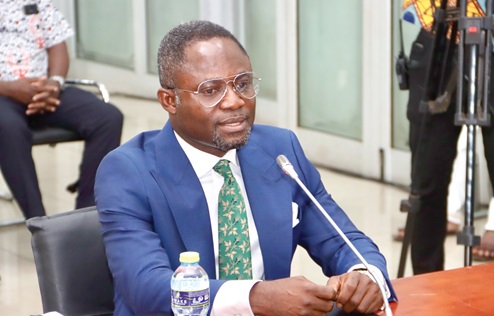The Ghanaian government has announced stringent new measures to stem the influx of highly addictive opioids, following revelations of illegal drug exports into the country.
The Minister for Health, Kwabena Mintah Akandoh, disclosed in Parliament that a joint task force has been mobilised to tighten surveillance at key entry points.
The initiative follows a recent BBC investigation, which uncovered that pharmaceutical company Aveo had been illicitly exporting a hazardous blend of tapentadol and carisoprodol to Ghana and other West African nations.
“A Joint Task Force involving the FDA, the Narcotics Control Commission, Customs, and the Ghana Revenue Authority (GRA) has intensified checks at little entry points to prevent further unauthorised imports, leading to disruption of a large consignment of Tramador and similar drugs,” Mr Akandoh stated.
The Health Minister further revealed that monitoring of over-the-counter drug sales has been ramped up, adding that “inspections have been intensified and legal action taken against offenders.”
Meanwhile, medical professionals in Parliament raised alarm over the devastating impact of these substances on communities. MP for Korle Klottey, Dr Zanetor Agyeman-Rawlings, described the situation as “quite shocking,” citing disturbing incidents in her constituency.
“As a matter of fact, in my constituency, we have a cluster of schools, the Nii Amugi Cluster of Schools, where people who are addicted to drugs have actually invaded the premises, where they harass children, they harass the teachers, and in the last three weeks, one of the security personnel in the school was attacked by a gang of drug addicts and is now at the 37 Military Hospital in a coma," she said. "Mr Speaker, the ramifications of this illicit drug inflow into Ghana go beyond the large scale, but it's affecting people’s lives, it's affecting the security in our schools, it's affecting the security of our ordinary citizens.”
Echoing similar concerns, Lambussie MP, Prof Titus Beyuo, highlighted the addictive nature of these substances and their harmful consequences for public health.
In response, Minority Chief Whip Frank Annoh-Dompreh urged the government to allocate adequate resources to combat the growing crisis, stressing the need for sustained enforcement and intervention.
The government’s latest actions underscore a renewed commitment to tackling illicit opioids, but with increasing cases of drug-related incidents, stakeholders warn that a more comprehensive approach will be needed to address the root causes of the crisis.

